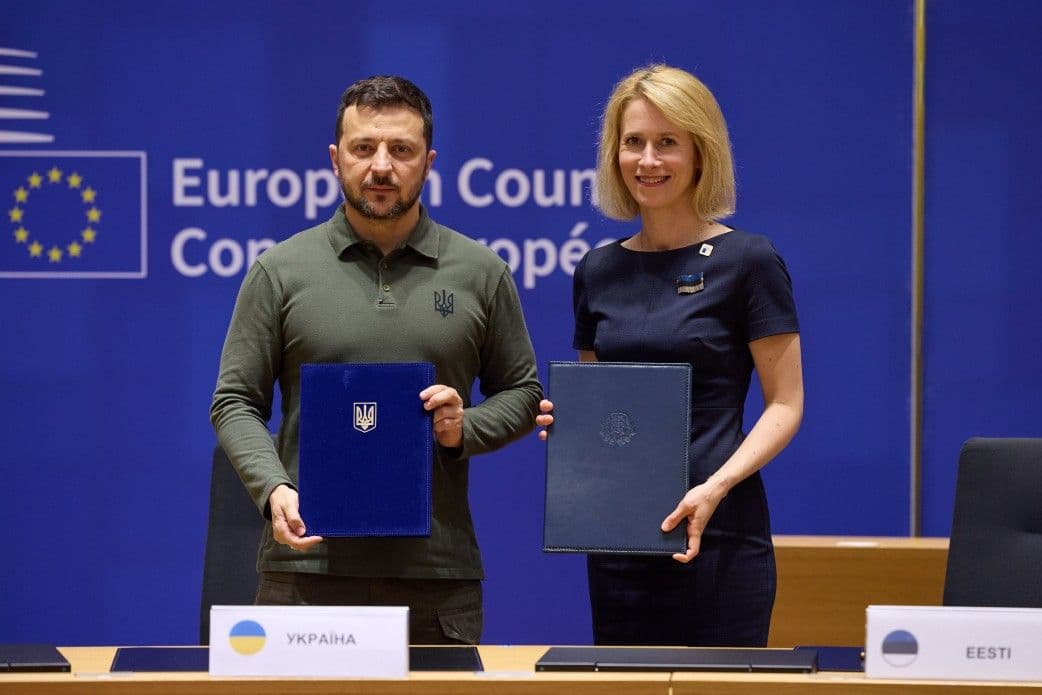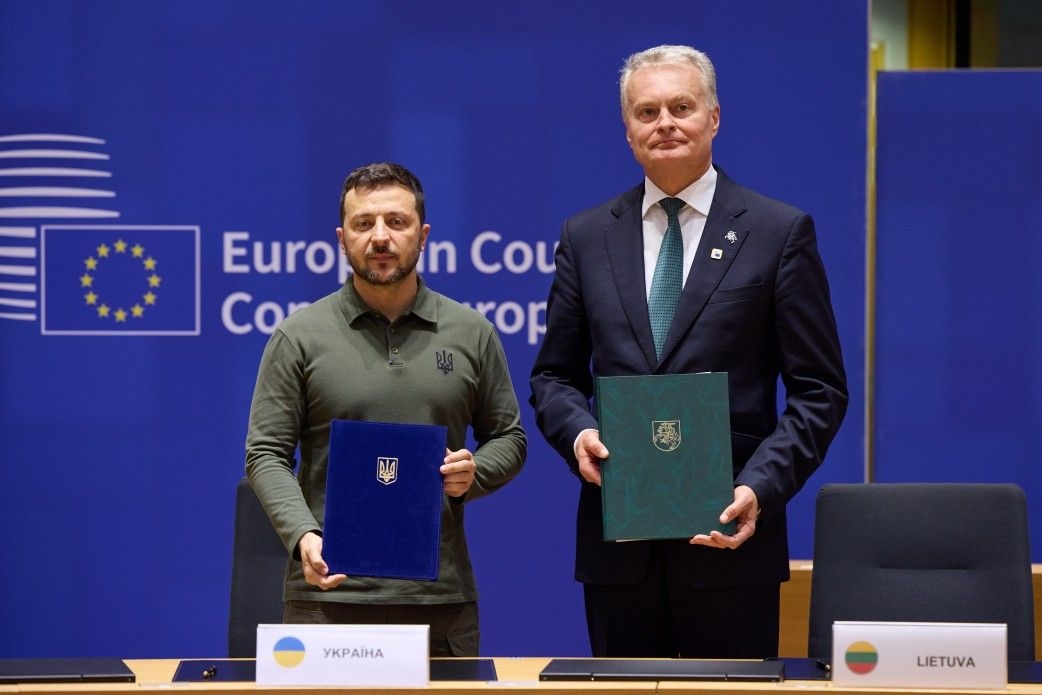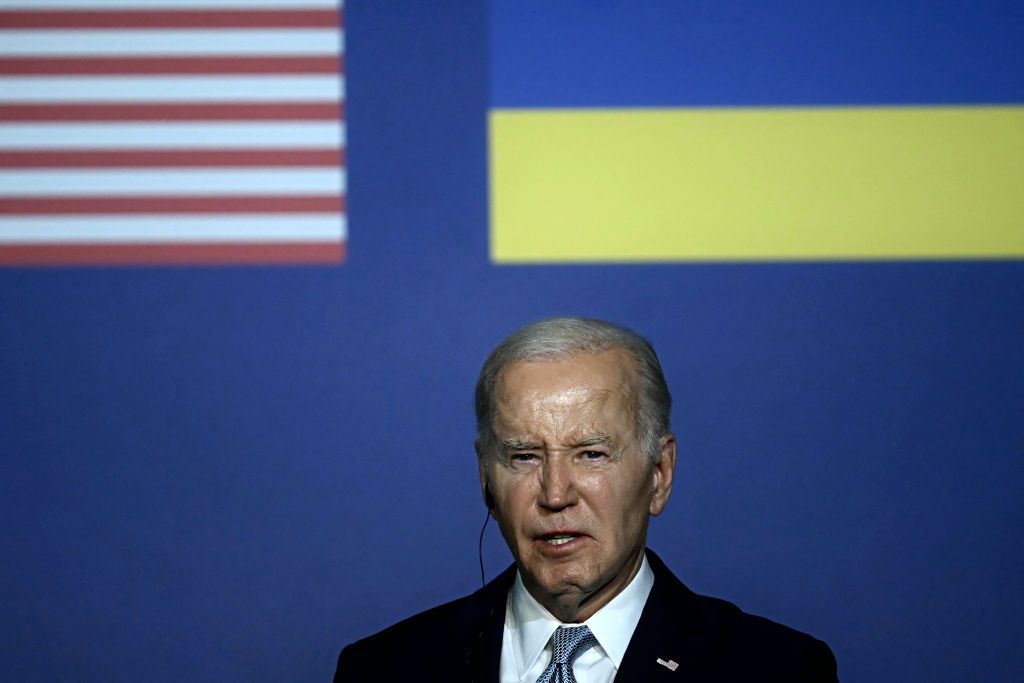Ukraine signs long-term security deals with Estonia, Lithuania

Editor's note: This story is being updated.
Kyiv signed 10-year bilateral security agreements with Estonia and Lithuania at the Brussels summit on June 26, Ukraine's Presidential Office reported.
The two nations have joined 17 countries, including the U.S., the U.K., Germany, and France, that have signed similar bilateral treaties to help Kyiv repel Russia's aggression. The agreements are based on a pledge made by the Group of Seven (G7) last July.
Earlier in the day on June 26, Kyiv also signed a security deal with the European Union.
Tallinn and Vilnius will provide Ukraine with long-term military and financial assistance, according to the agreements.
Estonia is expected to supply Ukraine with defense aid worth more than 100 million euro ($107 million) this year and will allocate at least 0.25% of gross domestic product (GDP) annually for military support in 2024–2027, according to the deal.
The document sets out certain components of long-term military assistance, including the types of Estonia-supplied weapons, such as artillery, anti-tank missiles, rifles, unmanned systems, and electronic warfare equipment.
Kyiv and Tallinn will also will launch a regular "strategic dialogue" to discuss security and defense issues in both countries. The two nations also are expected to deepen cooperation in the field of the military-industrial complex.
Vilnius will aim to allocate 0.25% of its GDP annually to support Ukraine's security and defense and will continue to provide humanitarian aid, according to the pact.

"Lithuania will also potentially resume a military training mission in Ukraine," the statement read.
Lithuania also promised to provide Ukraine with security support and modern military equipment in the land, air, maritime, space, and cyber spheres.
The two countries agreed to counter hybrid threats and nuclear risks, as well as strengthening the protection of critical infrastructure and cooperation in the field of intelligence.
Some blocks of the deal relate to bringing Russia to justice, strengthening sanctions against Moscow, and working on a compensation mechanism.












